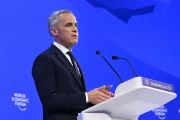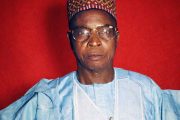Ordinarily, Intervention does not publish what is not original to it. That is how this place was set up and the unwritten law is not about to be changed but to be followed even more rigidly. The law is, of course bent now and then but never casually. This article is one such instance.
No piece of writing can be perfect. The principle of iterability evacuates that. However, some pieces of writing can strike as a hit on all counts: subject matter, timing, public interest, problem solving (not in the Coxian sense) and agenda setting. This article is a hit on all counts, not because it attacks a minister (although that is part of it because too many ministers are advertising their ignorance nowadays) but because it has touched the real trouble with Nigeria. The problem discussed here affects Nigeria negatively twenty times more than corruption or any other ‘wahala’ ailing Nigeria! It is not a uniquely Nigerian problem. The difference is that while other societies are trying to address it, it is being reinforced in Nigeria! The ‘giant of Africa’, indeed!
By Kabiru Danladi Lawanti
In a nation struggling with structural dysfunctions, policy somersaults, and deepening social fractures – insecurity, armed banditry, Boko Haram, phone snatchers and what have you, it is disheartening—though no longer surprising—that many Nigerian leaders have developed a casual contempt for the social sciences. They are fond of dismissing disciplines like sociology, political science, anthropology, and philosophy as intellectually ornamental or developmentally irrelevant. On Wednesday last week, the Minister of Education, Dr. Tunji Alausa, was quoted by the Independent Nigeria newspaper that the country is already “saturated” with graduates who studied social science related courses. This mindset is not only anti-intellectual; it is anti-progress.
This disdain, often paraded in public discourse, reveals more than ignorance—it exposes a dangerous misreading of what development truly entails. Though I am not surprised, because this is not the first time. Obasanjo as Nigeria’s civilian President made a similar comment. Likewise President Buhari. You find even academics, especially in sciences having this disdain for social sciences. This mindset assumes that human advancement is purely technical or economic, discounting the complex social systems that make any material progress sustainable. But nations are not machines; they are organisms. Their deepest problems are not mechanical, but human.
We live in a very interesting time where facts are fluid and narratives often outrun reason. In this context, you see people with no grounding in the social sciences often mistake authority for insight and confidence for competence. This is how Nigeria ends up with smart roads built for dumb traffic systems, and massive infrastructure that never integrates with lived human realities. This is how policy failures persist—because they are not failures of intention, but failures of understanding human systems.
Technocrats may build bridges, but social scientists know who will cross them, when, and why. Development divorced from social logic is how you get airports without passengers, schools without learning, and security budgets that do not buy peace. The social sciences do not merely critique; they clarify. They offer frameworks for understanding power, identity, trust, values, and the very architecture of governance.
This is what we suffer from since independence in 1960. Nigeria inherited infrastructures built by the colonialists but not the intellectual frameworks that underpinned the modern state. We copied Western institutions but left behind the social theories that explain how those institutions function. This is why we have a democracy without deliberation, a federalism without decentralisation, and a legal system alien to communal justice.
This intellectual short-circuit is at the root of our leadership crisis. Many in power believe that development is a matter of building things rather than building people. They see GDP, not Gini; roads, not relationships. This is not a neutral bias—it shapes what gets funded, who gets heard, and how the future is imagined. By sidelining the social sciences, we abandon the tools most critical for interpreting Nigeria’s real challenges.
History shows that no society leaps forward by ridiculing the very disciplines that explain its soul. The West did not arrive at its current state of development on engineering alone—it did so by understanding institutions, culture, social capital, and the psychology of change. China’s rise was not powered by tech only, but also by re-engineering Confucian social values to fit a new political economy.
Nigeria’s crises—ethno-religious conflict, institutional decay, elite capture, corruption, insecurity, trust deficits—are not technical problems. They are social problems with technical symptoms. The inability to understand this is why we keep solving the wrong problems at scale.
The role of the social sciences is not to echo power, but to interrogate it. They ask uncomfortable questions; Why are some groups excluded? How does policy translate in real lives? What are the unintended consequences of reform? These are not abstract inquiries; they are prerequisites for sound decision-making in complex societies.
If we are serious about nation-building, then we must treat knowledge as a national asset. That begins with restoring the intellectual dignity of the social sciences. Universities must resist the commodification of knowledge and revive the role of theory in shaping practice. Civil society must amplify social insights, not just economic data. And policymakers must be taught that a PhD holder in physics may build bombs, but only political science can explain why a bomb may be dropped.
Until we build a political culture that respects ideas—and not just capital or charisma—Nigeria will continue to recycle crises. The social sciences are not Nigeria’s problem; they are part of its salvation. Leaders who dismiss them betray not only their own intellectual poverty but also the future they claim to be building.
Internet search suggests that the author is a journalist and an academic with a relationship with Ahmadu Bello University, Zaria




























